EDFD 167 Essay: Applying Kohlberg's Moral Development Theory
VerifiedAdded on 2023/01/23
|5
|548
|47
Essay
AI Summary
This essay examines Lawrence Kohlberg's theory of moral development, specifically focusing on the pre-conventional stage, where children's morality is externally regulated by authority figures like parents and teachers. The essay highlights the importance of this stage in shaping children's behaviors and attitudes, emphasizing the role of educators in guiding and nurturing children's moral development. It discusses how teachers can integrate Kohlberg's theory into classrooms to foster ethical behavior and social responsibility. The essay also references the sociocultural theory of Vygotsky, particularly the zone of proximal development, and its relation to the development of cognition, adding context to the discussion of child development in an educational setting. The paper emphasizes the importance of understanding how children learn to differentiate between right and wrong and the role of teachers in the process.
1 out of 5
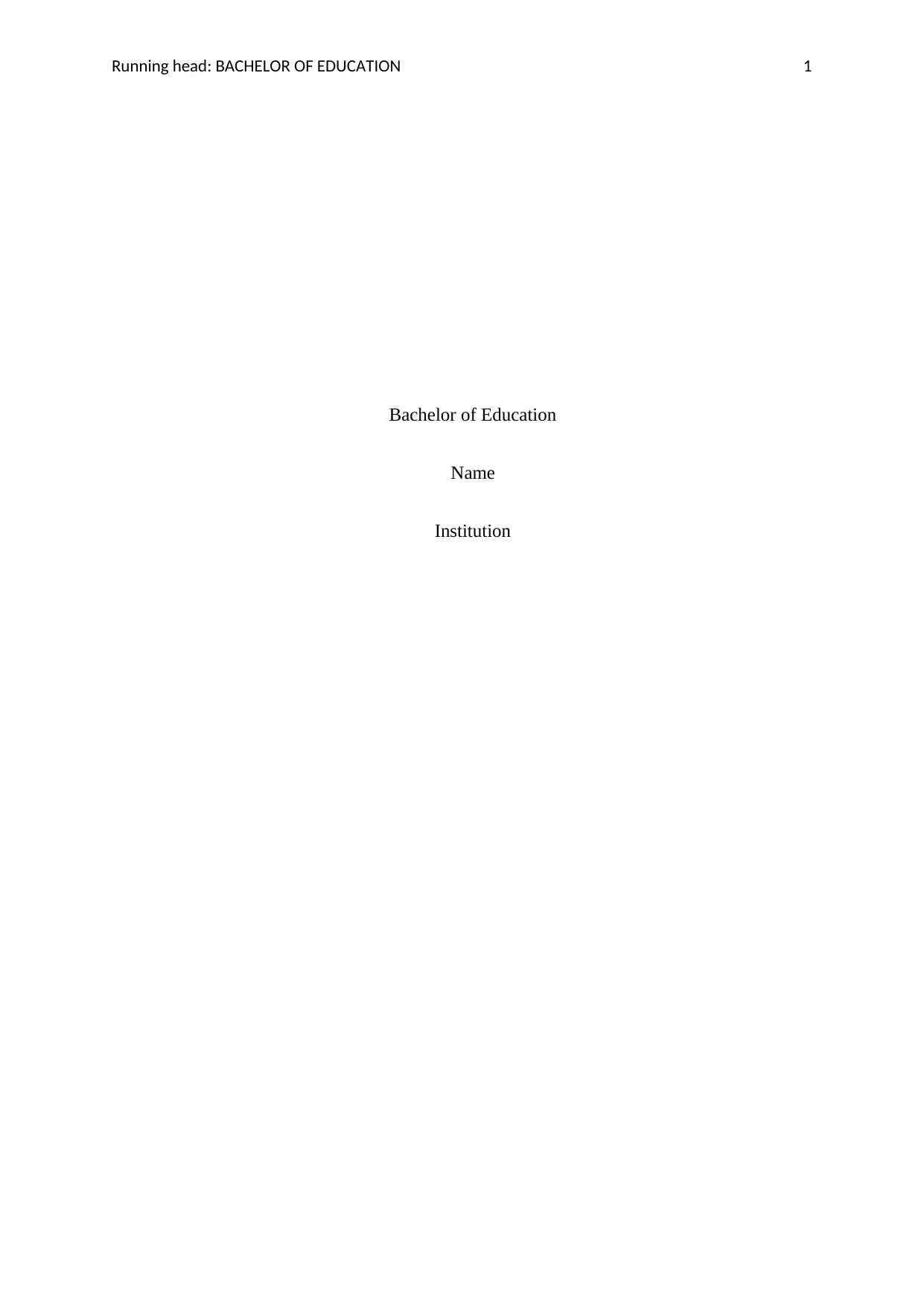
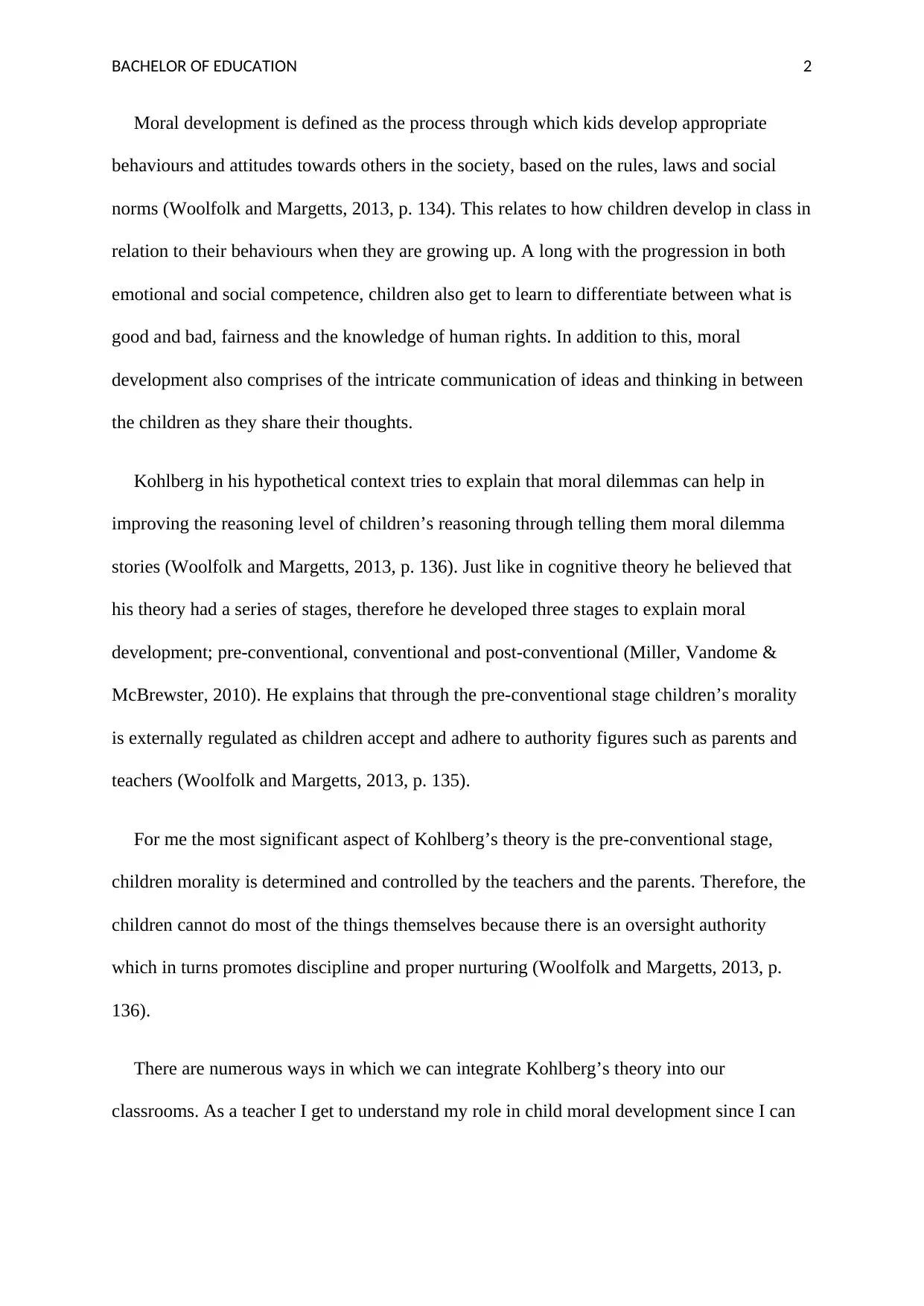
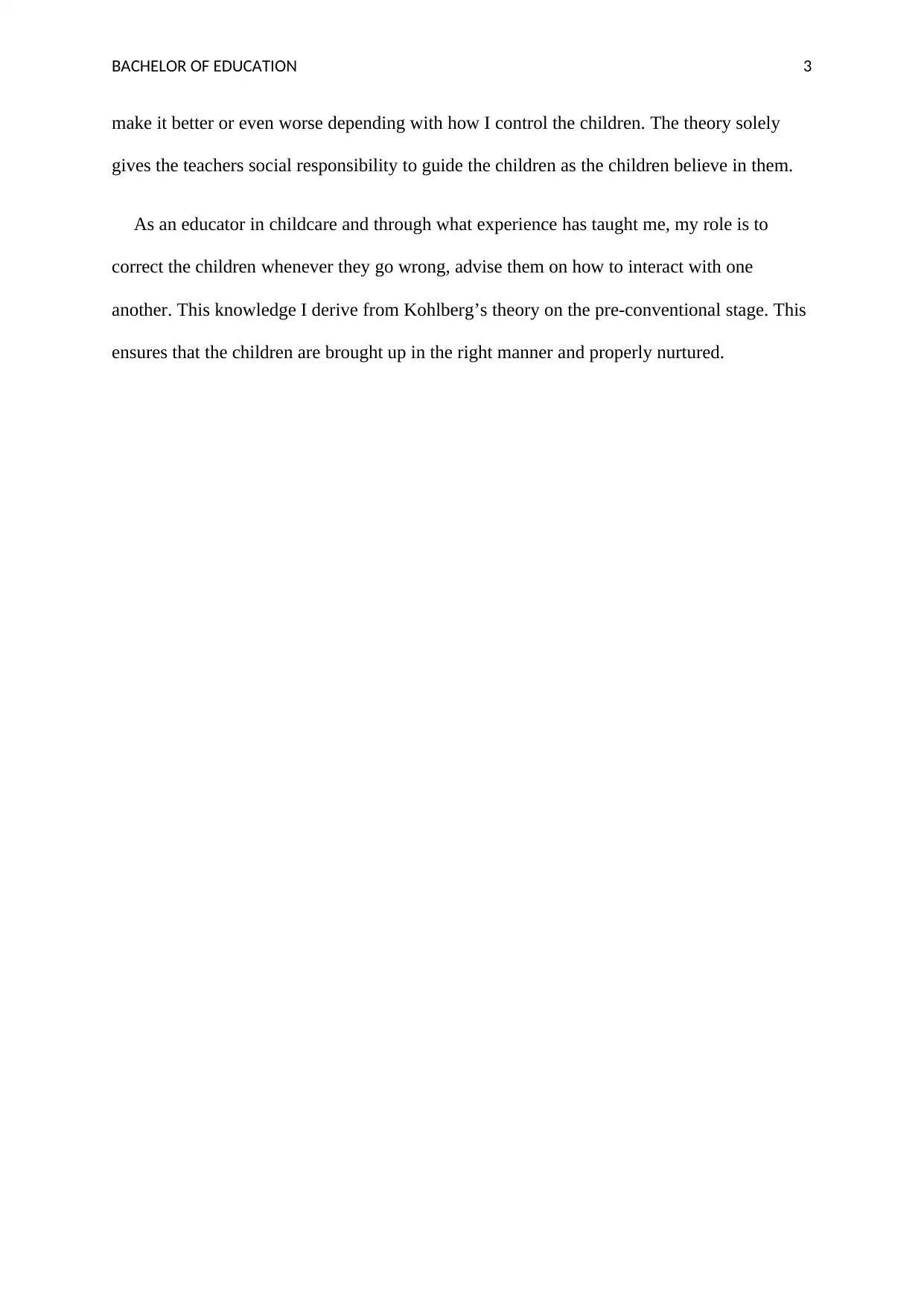

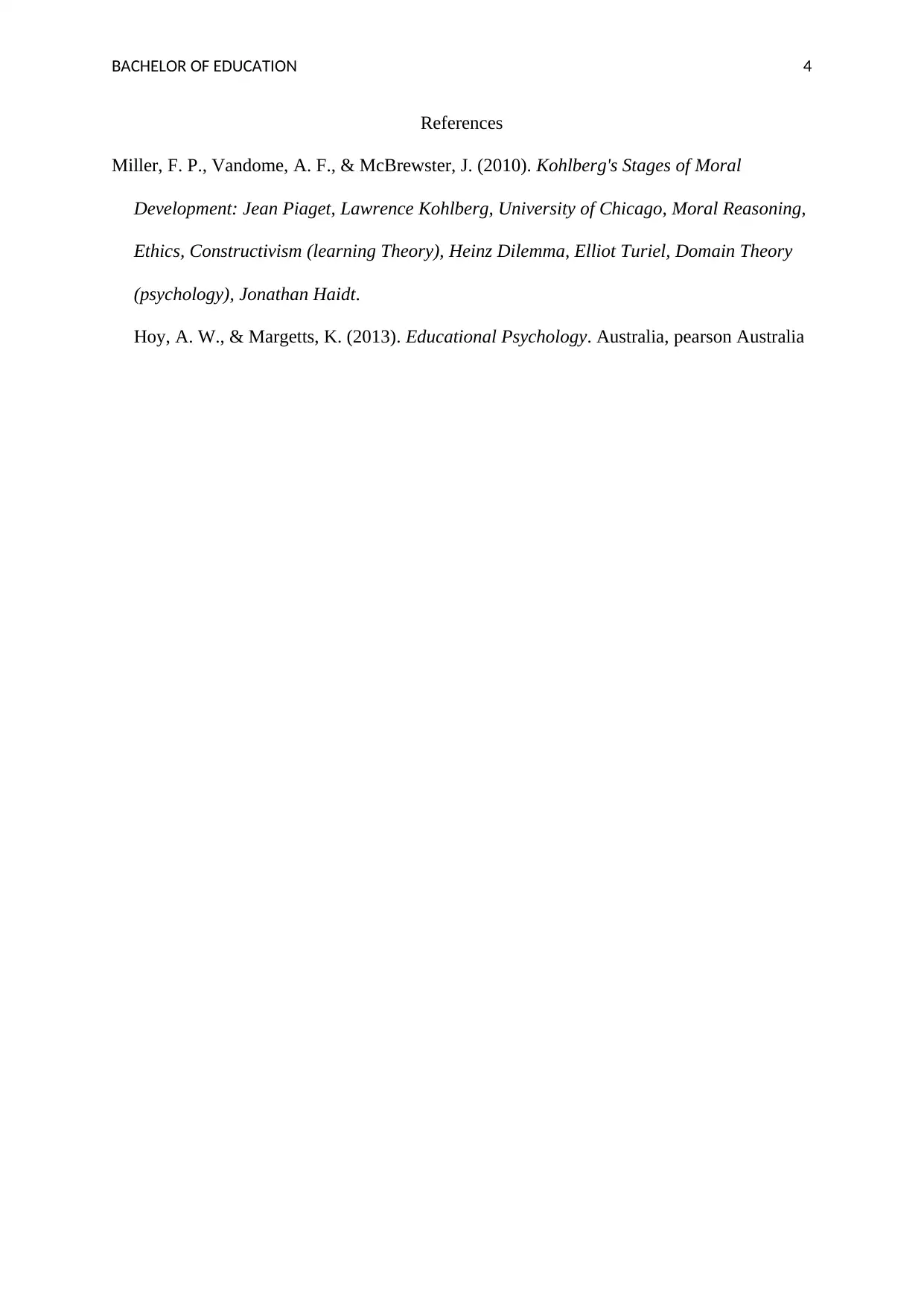
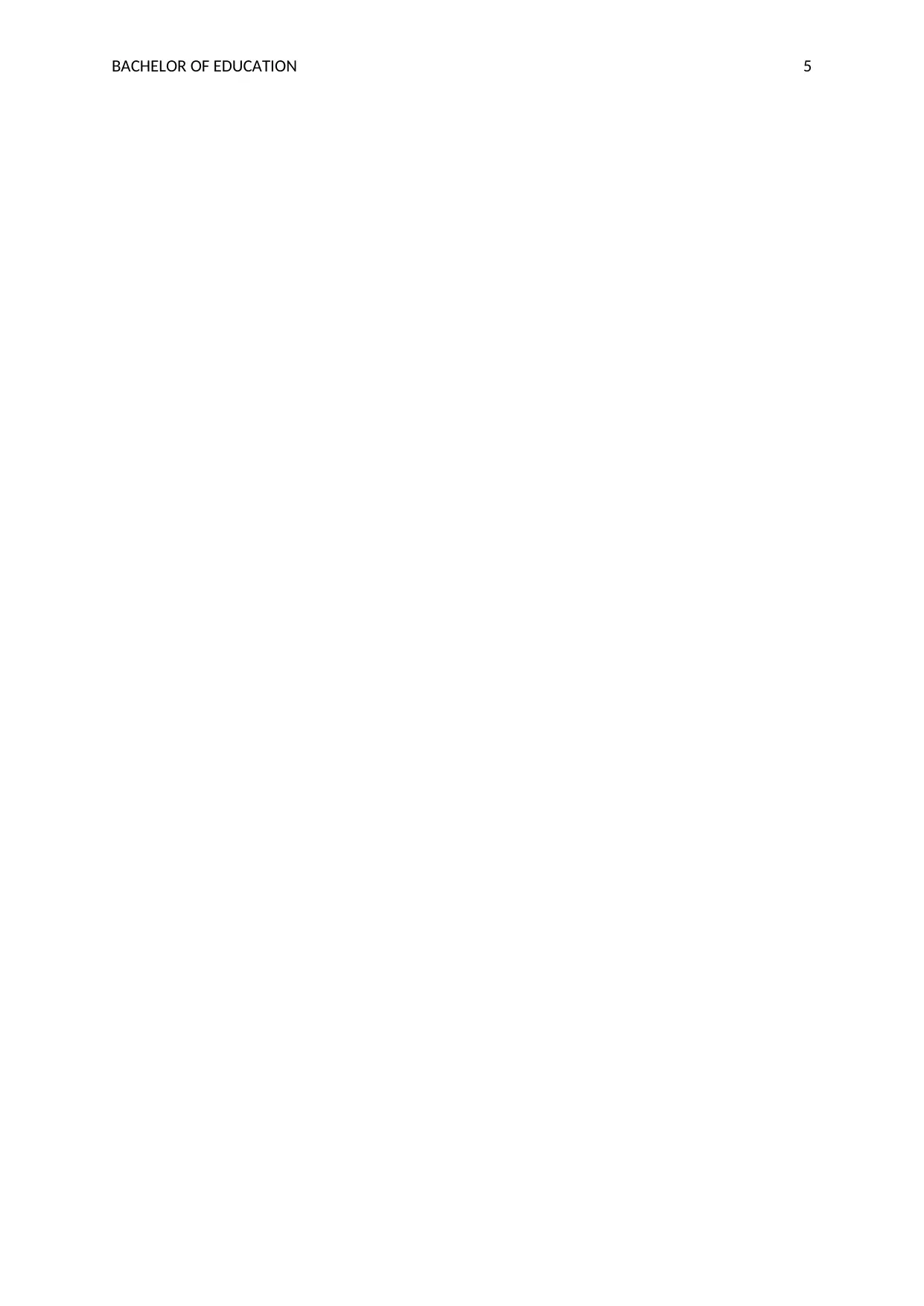






![[object Object]](/_next/static/media/star-bottom.7253800d.svg)